With wave after wave of new music technology and the dreaded “Sync” button, anyone can claim to be a DJ these days. Queerty takes a snapshot of some of the best UK gay scene DJs. In no particular order…
Stewart Who?
Stewart Who? has written and provided vocals for dance tracks including the gold-selling Twisted. He started DJing in 1987 on Richmond College radio. It was the dawn of acid house and illegal raves. “I got stuck in, with the gusto one expects from an unruly teenager – which I was,” he says.
He was one of the last London DJs to give up vinyl: “I still love working with it, but the opportunities are rare.”
About his style: “It’s mostly party music. I want people to grin, dance and have a ball. That might be vintage disco on a beach in Ibiza or hard, tribal underground house at the fetish club Hotwired. I’m a crowd pleaser with high standards.”
How about we take this to the next level?
Our newsletter is like a refreshing cocktail (or mocktail) of LGBTQ+ entertainment and pop culture, served up with a side of eye-candy.
About the UK gay scene: “London offers seven nights of sheer, queer, madness – if you know where to look. There’s always somewhere to ruin a girl’s reputation. That’s why I love it.”
Check out: https://soundcloud.com/
Chris Camplin
A resident at the the monthly Handsome party at East Bloc, Chris Camplin is a classically trained pianist whose stylistic roots go back to the drum and bass, garage, house and techno of the late-’90s. He started DJing three years ago.
About his style: “Underground House and techno.”
About the UK gay scene: “A funny old place.”
Check out: https://soundcloud.com/christopher-camplin
Lee Harris
Lee Harris started DJing around 14, with his first club gig on his 18th birthday. He won the Ministry of Sound DJ competition and went on to play alongside Judge Jules and Paul Oakenfold.
About his style: “Anything that makes you shake! I play from House to Tribal, mostly with vocals and samples, mashups and special edits. I also remix live.”
About the UK gay scene: “It has something for everybody, you just need to look for the good stuff, probably the most varied city in the world for gay nightlife.”
Check out: His regular podcast on iTunes, “HouseNation UK,” and www.djleeharris.com
Alan X
Alan X is a true House pioneer and scene legend, known for his infectiously classic beats on the dance floor. He says: “House music only caught on up north first — like at the Hacienda in Manchester — we all pioneered it up there in the industrial towns. London caught up a year later.”
He’s currently producing new music with music partner Louis Lennon as Done & Dusted. He uses USBs when he plays.
About his style: “It’s sick twisted ghetto tech tribal dark lifting pumpin’ muthafunkin’ House!”
About the UK gay scene: “It’s become like the rest of the world: ruled by fear! I look forward to a new generation … to build a new underground scene.”
Done & Dusted are part of the East Bloc residents for club night Blocheads. They also play regularly at Barcode and Bear Necessity.
Check out: http://djalanx.podomatic.com/
Severino
Italian native Severino wanted to be a DJ since he was 7. He’s a regular at the Sunday night party Horse Meat Disco. He practices with vinyls and cassettes and plays with CDs.
About his style: “I guess it can be eclectic. I play from disco to House to everything I love.”
About the UK gay scene: “It’s pretty diverse and still fun. I think there’s something for everybody.”
Princess Julia
Scene icon Princess Julia’s first official gig was in 1986 at the Daisy Chain. She’s also a writer for iD magazine and QX.
About her style: “My heart lies in disco and all styles of dance music, I love pop from all eras as well. generally I like to mix it up.”
About the UK gay scene: “It’s vibrant, inventive and inspiring. I mostly ramble on about all the exciting parties and events going on the alternative scene in QX and my weekly column Revoltage.”
Ariel
Argentinian sensation Ariel has sold over 2 million records. He was known for his eight hours plus sets on four or more turntables back in the day, at clubs like Bagleys and Fabric. You’ll find him playing at Room Service or the Joiners Arms. He uses CDs and vinyl. “I like mixing the stuff myself and not let a computer do it for me,” he says.
About his style: “Latin-influenced Electronic music.”
About the UK gay scene: “Vibrant.”
Check out: https://soundcloud.com/arielbelloso/ariel
Ben Jamin
Bearded-wonder Ben Jamin was a vinyl junkie from an early age. His friend at college taught him how to beat match. He says: “I mess around with abelton and tractor and garage band for loops. I re-edit quite often and have done a few mashups and remixes… I’m not a fan of mixing software at all.”
About his style: “Sleazy soulful house with a dark energy underside.”
About the UK gay scene: “It’s dying and shallow.”
Check out: http://www.mixcloud.com/Ben_Jamin
Jeffrey Hinton
London-born DJ and film-maker Jeffrey Hinton was part of London’s underground club culture in the ’80s, from Leigh Bowery’s Taboo to Daisy Chain. Now he plays at East Bloc, Dalston Superstore and Vogue Fabrics. He calls his style “eclectic.”
He says: “I am surrounded by things I like doing. They don’t all pay, but that’s not important. I wasn’t brought up like that.”
About the UK gay scene: “I think it hasn’t lost any of its hedonistic charm!”
Massimo Paramour
Starting his career as a professional DJ in 2008 at the Megawoof party, Massimo Paramour played indie dance and nu-disco in the bar area. “Not something that you would expect in a gay club,” he says.
About his style: It ranges from Deep Tech to Dirty House and Electronic Tech House. I like tension and drama in music. I’m not a fan of the “happy go lucky” sound.
About the UK gay scene: I usually complain a lot about the gay scene in London, but I think London is still one the most exciting places to go out.
Check out: https://soundcloud.com/massimoparamour
Maze & Masters
DJ duo Verity Mayse and Bryony Masters both started DJing about nine years ago in their hometown Brighton.
Bryony stood in for someone at Charles Street Club on Brighton Pride night, and ended up playing for 8 hours and landing a residency. Verity’s first gig was at a bar in a small town just outside Brighton – she played for wine.
They now have residencies at parties including Gravity at Protocol and the incomparable Beyond at Fire.
About their style: “We play what the crowd wants, at that moment, so you can never tell. But I guess we are known for a blend of deep, often dark but then always uplifting, pounding tech sounds, with roots firmly in proper House music, a glimpse of that always shows through.”
About the UK gay scene: “Its like no other in terms of community. When we step into a gay club it feels like home.”
Check out: https://soundcloud.com/mazeandmasters












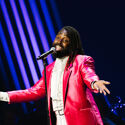






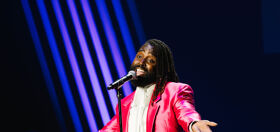

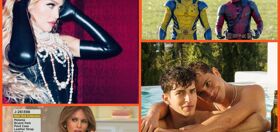


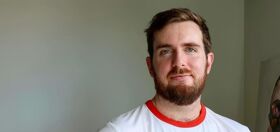
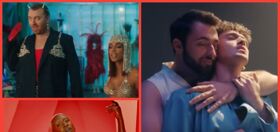
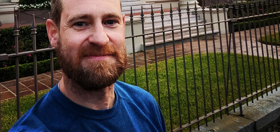

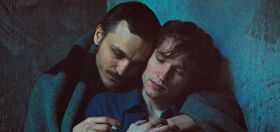
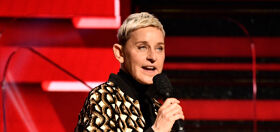
Jonathan26
Too much rain….all the time.
spiffy
So now one has to be good-looking as well in order to be a popular DJ?
MarionPaige
ChiChi LaRue works as a DJ so, looks can’t matter all that much.
I love, love, love the description of Avicii’s rise to DJ Stardom. When the barrier-to-enty for something is low to non-existent, it becomes ( a ) hard for the old guard to hang in for very long; and ( b ) you get fixations on things other than “talent” like looks and age etc (assuming that talent ever mattered when it cames to playing other people’s records).
I love the comment attributed to / about Avicii and other superstar DJs – that they can essentially go from gig to gig with usb drives in their pockets. Allegedly, Avicii said that “carrying around records” was something “those old DJs did to try to convince people that they were still relevant”.
BTW, doesn’t Boy George still work as a DJ in London?
Kangol
That Chris Camplin is scorching hot.
highonhope
Talented and uber gorgeous as they are on this list and all worth listening to I guess there are no talented black djs that the author of this article knew. Perhaps he/she should get our more often. This is a bit of a snow storm in a tea cup.